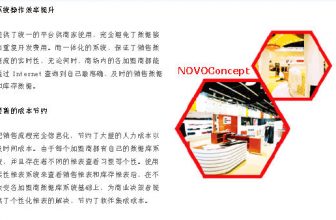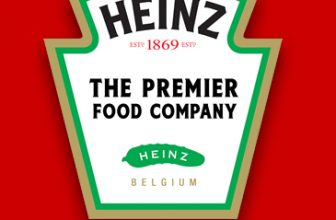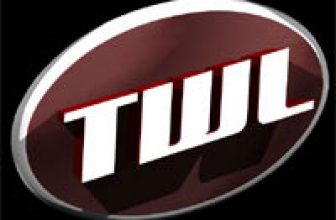
In response to HACCP compliance, SATO introduced a cloud-based IoT system for Aeon Retail
[ad_1]
February 14, 2019, Tokyo—Aeon Retail introduced the IoT cloud system developed by SATO for food safety management and strengthening HACCP compliance#. The system can centrally manage the food processing process and the product data of each store. Aeon Retail plans to implement the program in approximately 400 stores in Honshu and Shikoku.
The Japanese government revised the Food Sanitation Law in June 2018, and Japanese retailers are preparing for the new HACCP compliance. Aeon has always been committed to providing food of consistent quality to all stores to ensure safety and peace of mind, and believes that continuous records can ensure that operations are in place. However, since it was written by hand before, recording and management required a lot of manpower. According to the Japanese Ministry of Agriculture, Forestry and Fisheries survey# for food processing manufacturers, 46.4% of the reasons for the introduction of the HACCP system have not yet responded to the new regulations. About half of the responses are “the cost of post-introduction testing and data record management”, listed in the “system” “Introduction costs, rectification and maintenance costs” ranked third.

In this case, Aeon Retail and SATO have developed a cloud-based IoT system for HACCP compliance to efficiently and automatically record necessary data points, so that system administrators can perform inspections on Japanese stores under the same authority. Timely data management. By cooperating with multiple refrigeration and refrigeration equipment manufacturers, the system can integrate temperature management data for frozen and refrigerated products, which is important for keeping records. The system can finely manage information including commodity management rules for different freezing and refrigeration equipment through the same management platform. With this system, AEON Retail can save about 50% of manpower.
System plan diagram:

AEON Group is a Fortune Global 500 (ranked 103rd in 2018), Japan’s largest retailer, AEON Retail operates its hypermarket business. The AEON Group operates numerous convenience stores, supermarkets and other retail stores in Japan and the Asia-Pacific region. AEON is a member of the “Global Food Safety Initiative (GFSI)” council dedicated to continuously strengthening food safety management and ensuring the supply of safe food to consumers around the world.
The launch of this system provides Aeon Retail with a double advantage. While simplifying the process to save labor and improving customer service through this system, AEON intends to establish a global response to the implementation of the Food Safety Law in 2020. The 2020 Olympic and Paralympic Games will be held in Tokyo, and Japan will enforce HACCP food safety regulations. In the future, AEON Retail plans to use the scalability of the system to integrate with other systems, such as the attendance management system and production and processing logs, to visualize the workplace, improve working methods, and enhance employee satisfaction.
Import situation:
According to speculation, the introduction of this system can save 58% of manpower. At present, AEON Style Sendaicho (Sendai City, Miyagi Prefecture), AEON Style Mitosago City (Ibaraki Prefecture Mizuto City), and AEON Style Tsunan (Mie Prefecturetsu City) have introduced this system. In the future, it is planned to expand to existing stores such as AEON and AEON Style in Honshu and Shikoku, and to approximately 400 stores by June 2020.
#June 2018 announced amendments to the Japanese Food Sanitation Law, requiring all food professionals (including retail and food service industries) to comply with the internationally recommended HACCP (Hazard Analysis and Critical Control Point) sanitation management practices. By predicting hazards in the initial production and processing stages and preventing them through continuous record management, HACCP lays the foundation for food hygiene in the food supply chain.
#Based on the 2017 survey of the implementation of HACCP by the Ministry of Agriculture, Forestry and Fisheries
※HACCP is the abbreviation of English (hazard analysis and critical control point). The Chinese translation is Hazard Analysis and Critical Control Point. It is an economic and effective management system to control food safety. HACCP is the control of raw materials and various production processes that affect product safety. Analyze various factors, determine the key links in the processing process, establish and improve monitoring procedures and monitoring standards, and take effective corrective measures to prevent, eliminate, or reduce hazards to a level acceptable to consumers to ensure that food processors can consume Provide safer food.
※The temperature record of physical condition check and food heating is changed from manual record to tablet input. The automatic recording of the clinical thermometer/central thermometer measurement value is also in progress.

Measure and record body temperature

Measure and record the core temperature of food heating

Temperature overview of store refrigeration equipment
■ About SATO
SATO (Tokyo: 6287) uses advanced identification solutions to connect the last 1cm of data for customers in manufacturing, logistics, retail, food & beverage and medical industries, and is committed to becoming the most trusted global automatic identification solution provider. With more than 5,000 employees worldwide and 78 years of industry experience, SATO creates correct, labor-saving, energy-saving, peace of mind, environmental protection, and moving value for customers. As of March 31, 2018, SATO’s fiscal revenue was 113.383 billion yen (1.02 billion U.S. dollars).
[ad_2]






